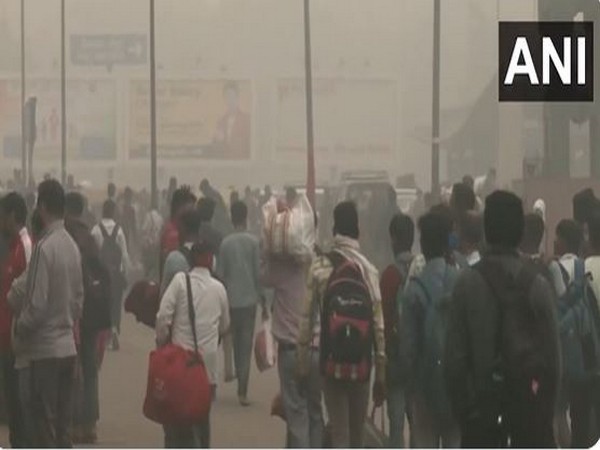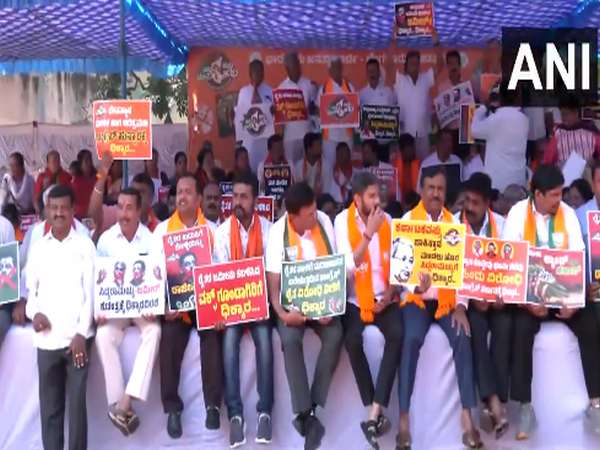Desk |
Updated: Nov 18, 2024 10:17 IST
New Delhi [India], November 18 (Desk): As foggy conditions continued to prevail in Delhi-NCR, several trains experienced disruptions on Monday morning, although the flight operations at Delhi Airport remained unaffected despite low visibility.
Purushottam Express, Shramjeevi Express, Jammu Mail, Punjab Express, INDP NDLS Express, UP Sampark Kranti Express, Sainik Express, Jammu Rajdhani Express, and Hirakund Express are among the other Delhi-bound passenger trains running behind schedule as of 6 AM, according to the information available.
The fog in the national capital is attributed to adverse weather conditions and air pollution. The air quality level plunged to ‘severe plus’ levels. According to the Central Pollution Control Board (CPCB), the Air Quality Index (AQI) recorded at 7 am was 483 in the national capital.
One of the passengers, Rahul, at the New Delhi Railway Station said, “I have been living in Delhi for 6 years now… I urge the government to take proper measures; everyone’s condition is bad… Environmental action needs to be taken very soon…”
Another passenger, Ankit Gujar, expressed concern over rising pollution. “We have to face a lot of issues here. The air is polluted, and breathing is difficult. I live in a village in the Amroha district of UP; the air is very pure there”, Gujar added.
Indira Gandhi International Airport (IGI) in Delhi has also faced low visibility since morning; however, officials have confirmed that the flight operations are normal.
The Graded Response Action Plan (GRAP) for the National Capital Region (NCR) is classified under four different stages of adverse air quality in Delhi: Stage I–‘poor” (AQI 201-300); Stage I–‘very p poor’ (AQI 301-400); Stage I–‘severe’ (‘ (AQI 401-450); and Stage ‘severe plus’ (AQI > 450).
Meanwhile, in response to worsening air quality in Delhi-NCR, the Commission for Air Quality Management (CAQM) has decided to activate Stage IV of the Graded Response Action Plan (GRAP) from Monday.
The Stage-IV response involves an eight-point action plan designed to mitigate the pollution crisis. Key measures include banning the entry of nonessential truck traffic into Delhi, except for trucks carrying essential commodities or providing essential services.
LNG/CNG/electric and BS-VI diesel trucks are permitted, while light commercial vehicles (LCVs) registered outside Delhi are restricted unless powered by electric, CNG, or BS-VI diesel engines. Additionally, Delhi-registered BS-IV and below diesel-operated medium and heavy goods vehicles are prohibited unless carrying essential goods or services. (Desk)





